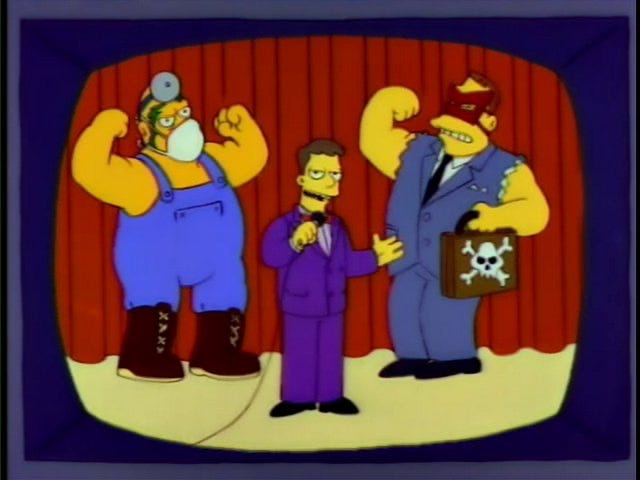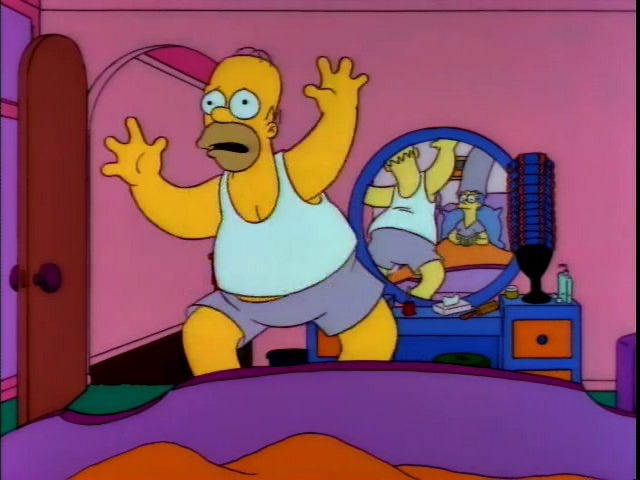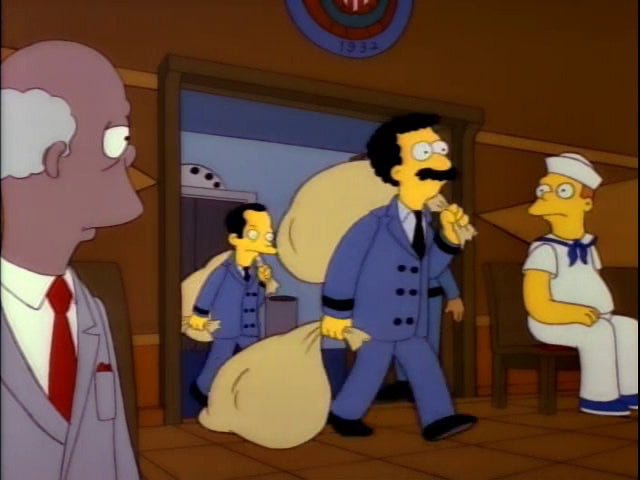(Not this kind of burnout. This is the kind of burnout I can jam with 👍)
Hello and welcome to a special bonus newsletter all about creative stress and what you can do to keep it from taking over your life.
Why am I talking about this now? I was tabling at ACME Comic Con in Glasgow last weekend - a great show if you’ve never been! - and I had a superb conversation on Saturday night with other comic writers about how each of us deal with creative stress.
What is creative stress? It’s a banner term I use for everything from imposter syndrome, fear of missing out and self doubt to burnout, feelings of inadequacy and more. These are things that even the bigger pros at the show said they’re still dealing with to this day.
So I wanted to lay out just a few of the great tips, techniques and quotable that came out of that discussion - and hopefully they can help you avoid the impact of creative stress.
Let’s jam!
UFU: Unidentified fake urgency
This is an interesting one, as many creative people can feel a mounting real sense of urgency about their work - the feeling that we need to get our comics finished and out there into the world as soon as possible.
Why though? Unless you’re getting a comic ready to launch at a show or an editor’s given you a hard deadline then what - exactly - are you stressing yourself out for?
I’ve been in this situation many times and earlier this year I had a proper think about where the urgency was coming from.
I reasoned that it stemmed from that fear of becoming irrelevant or forgotten - the belief that you have to keep putting books out in order to stay relevant and avoid being forgotten.
I mean, you might be forgotten if you stop making books for years, but chances are this is all just mind games. It’s a cliche at this point, but comics are a marathon, not a sprint. Rush them without a good reason, and they’ll like turn out worse for it, and the mounting stress will either make you burn out, resent your craft or both.
So if the panic and urgency sets in, try to stop and ask yourself if there’s really a hurry. It’s entirely possible there isn’t.
Self-doubt / Imposter syndrome: the heavyweight tag-team champs of creative stress
There are two types of imposter syndrome to talk about. The first is a real pain…
How many times have you been working on something, you hit a tricky part, then your brain starts trying to convince you that you’re not good enough to get past it?
It might also tell you that you’re not talented, your previous successes were all flukes, you’ve lost whatever spark or talent you once had, you’ll never get this finished, you’re a fraud, an imposter, and so on.
Being brutally honest, this happens to me weekly. And I get it, this one really sucks once it takes hold - doubly so once you start believing your brain.
The best way to think about this one is to realise that every project has tricky parts, or scenes that don’t quite fit, or dialogue that doesn’t feel right.
My best advice is to stop working immediately once you start to panic or start believing the imposter syndrome. Trying to brute force your way through whatever’s causing you difficult will only make you stress more. It’s time to pick your battles and step away from your computer for the night, you’ve gotten too close to your own work.
Because trust me, if you do this and do literally anything else, you’ll free up your headspace and eventually the solution to your issue will pop into your head at random - or you’ll be able to see it more clearly next time you sit down to work.
Take it from someone who routinely has the answer to his writing hurdles pop into his head randomly while in the shower, on the treadmill or while taking a walk. I just trust that it’ll happen, because it always does.
What about the other kind of imposter syndrome?
The first kind was related to specific creative triggers, like part of your story not working. The other kind is more about you as an individual - like when you look at someone else’s work or success and think “I’ll never be that good.”
And the harsh (but freeing) reality is yeah, you might never be that good. But why should that matter? Why are you trying to emulate someone else’s success instead of shaping your own?
You and the other person are completely different people, with your own creative influences, methods, styles, contacts, opportunities and trajectories. You will never be completely alike.
Plus, don’t underestimate the power of being able to look backwards. You might feel crappy about your potential and abilities now, but look at everything you HAVE done. You couldn’t have done that if you were truly talentless. But you did. You made ideas in your head into something real and tangible that people enjoy.
Reflect on that, let it wash over you and allow space to give yourself kudos. It’s not egotistical to do this at all. You’re doing the work, putting the time in and making people happy with your output.
And if you’re just starting out and feeling lost or doubting your ability to create, then know that literally everyone who pursued any sort of creative endeavour has felt that way. Try your best to enjoy the ride and remember that hardly anyone creates their best work on their first try.
Honestly, the best thing you can do is become kind of (positively) selfish and uncaring about this stuff. You do you, as they say, and as long as you have fun making things on your own path and terms, you can’t possibly lose.
Was this helpful? Want to see more like this?
Many of these scenarios and the solutions to them are things I’ve discussed in counselling sessions. My therapist is like a genius who can just clarify these complex feelings in mere moments - in a way that makes me think “oh yeah, why am I stressing over this thing? It makes no sense!”
So yeah, hang in there, keep making great things and try to cut yourself slack. This is meant to be fun, after all :)
Want to see more of these tips? Let me know in the comments.
Stay well and see you on the next one.
-Dave








